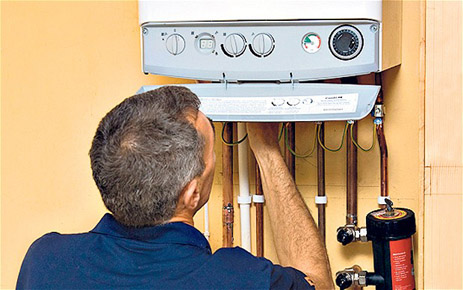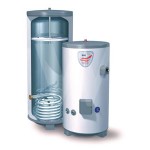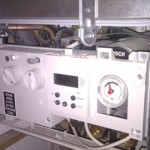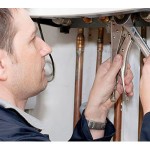Gas Boiler Replacement: Save Your Energy & Money While Improving Comfort in Your Home
Gas boilers have always been a cornerstone in the home heating industry, and over the last decade or two they gained a great popularity and became one of the most preferable and common type of home heating system available on the market. This is mainly due to the fact that gas boilers are not only cost effective or eco-friendly, but because they are also capable of producing high efficiency AFUE (Annual Fuel Utilization Efficiency) ratings, thus contributing to saving your energy bills. Every average domestic household gives preference to gas boilers, making them customers’ number one choice of home heating equipment. But alongside the pluses, there are also minuses, and one should remember that gas boiler is nothing but an appliance with a due date, and sooner or later you may need to replace gas boiler with a highly-efficient one.

Contents
When to Replace Gas Boiler: Speaking of Boilers’ Energy-Efficient Improvements
Many people are asking ‘what time is it better to replace gas boiler’. The answer is simple – when it’s old enough (usually 15 years) and starts malfunctioning. That’s why, if your gas boiler broke down and it’s no longer operation, be sure to start looking for a new boiler to satisfy your high efficiency rating and average cost needs. Thankfully, it’s rather easy, because today’s market-available boiler options can guarantee high-efficiency ratings, thus saving energy and money while improving comfort in your home. Besides, new high-efficiency boilers incorporate a lot of energy-efficient improvements that guarantee high AFUE ratings, such as:
- power burner (mechanically mixes air and gas and injects the mixture into the combustion chamber, inside which a positive pressure is produced to ensure proper draft through the boiler);
- ceramic hot surface igniter (electrically energized igniter that eliminates the pilot altogether by quickly attaining a very high temperature);
- electronic spark ignition (ignites the pilot light only when there’s a demand for heat, thus improving the boilers’ AFUE by eliminating the consistently burning pilot flame);
- vent damper (when the main burner is off, it prevents heat from escaping up the flue, thus increasing the furnace’s operating efficiency).
Things to Consider When Replacing Gas Boiler: What Heating System You Have & What Heating System You Would Like to Replace It With
An old gas boiler wastes energy and is rather costly to run because a large heat portion gets lost up the chimney, making its operational efficiency as low as 60% rate. If the boiler is well-maintained, it can last up to 30 years, but if it’s poorly-maintained, then the boiler’s life can be severely shortened. In such case you need to replace gas boiler with a highly-efficient one that can get an AFUE rating up to 90% by simply capturing more of the heat lost, thus saving you up to 20% on your home heating bill.
First of all, you should understand what type of heating system you have and what heating system you would like to replace it with. Generally, there are three main heating systems that you may have installed: combination boiler, gravity fed system (with separate hot water cylinder) or high pressure (unvented) system (with separate hot water cylinder). You can either upgrade your current heating system or you can replace it with either highly-efficient condensing boilers, or refer to solar water heating system that is very popular right now. Everything depends on what system type you prefer or is suitable for your home, but remember: if the gas boiler has not been well-maintained, then its efficiency is going to decrease in the long run, and you’ll still need it to be replaced.
- popular
- new






